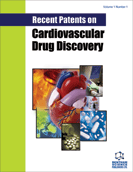Abstract
An estimated 1-3% of patients who receive therapeutic anticoagulation with unfractionated heparin (UFH) develop antibodies to heparin with concomitant development of thrombocytopenia, defined as HIT or Heparin-Induced Thrombocytopenia. HIT complicates the management of patients presenting for cardiac surgery, particularly those who need cardiopulmonary bypass (CPB) which requires a large dose of UFH. A portion of these patients will have significant thrombotic complications referred to as HITT (Heparin-induced thrombocytopenia with thrombosis). In patients with established or suspected HIT, all heparin must be withheld and an alternative form of anticoagulation utilized for CPB. Various approaches and pharmacological alternatives have been described but no regimen has replaced the routine use of UFH anticoagulation with protamine reversal after CPB. We review the use of bivalirudin as a reliable and safe alternative anticoagulation strategy during cardiopulmonary bypass with specific emphasis on patients with HIT and outlining some recent patents.
Keywords: Bivalirudin, cardiopulmonary bypass, &, heparin-induced thrombocytopenia
 23
23


